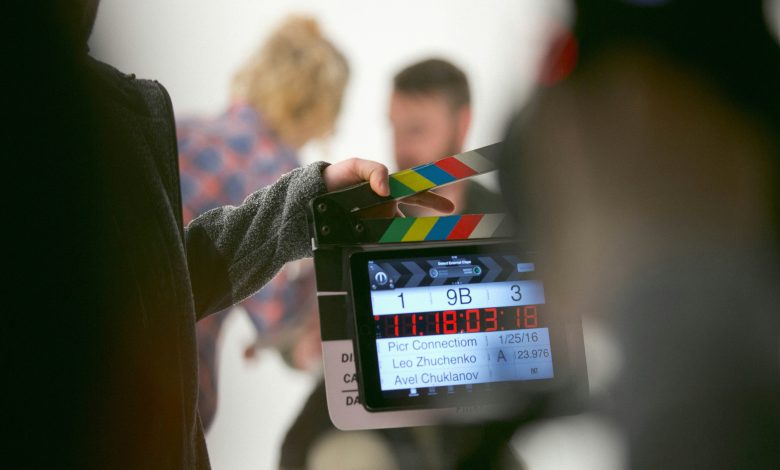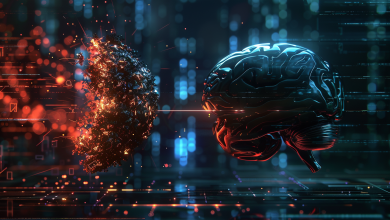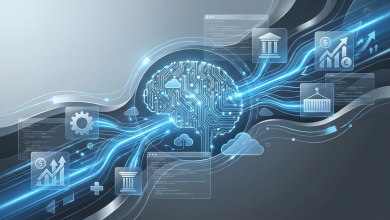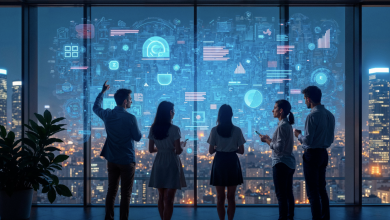
Making movies used to follow a set formula. Write a script, cast actors, hire crew, secure funding, shoot on location, then spend months in post-production. That entire system is being rewritten by artificial intelligence, and the changes are happening faster than most people realize.
This isn’t about experimental short films or viral TikTok clips anymore. We’re seeing AI-generated scripts, AI-powered visual effects, and completely AI-created films making their way into festivals and streaming platforms.
Traditional filmmakers wrestle with funding challenges, lengthy production schedules, and complex logistics. AI filmmaking throws all of that out the window. Scripts can be rewritten in hours instead of weeks. Storyboards appear on demand. Entire sequences can be rendered without ever rolling a camera. This isn’t just a creative novelty. It’s a business model that could slash production costs and let independent creators go toe-to-toe with major studios.
This transformation raises some big questions. Are we heading toward a world where AI-generated films compete directly with traditional cinema? What does “authorship” even mean when algorithms create entire scenes? And if you work in film production or marketing, how will this shift affect your career?
Why Everyone Is Jumping on AI
The appeal of AI filmmaking comes down to one thing: it removes the cost and time barriers that have defined cinema for over a century.
Instant iteration becomes possible. You can rewrite a script in seconds and generate storyboards immediately. Instead of waiting weeks for pre-production planning, directors can visualize their entire film the same day they conceive it.
Production without physical limits. AI can create locations, costumes, and even actors that don’t exist in real life. A fantasy epic that once needed a $200 million budget can be prototyped with almost no production costs.
Post-production at lightning speed. Editing, color grading, dubbing, and subtitling can all be automated or enhanced with AI. Tasks that once required teams of specialists might be handled by a few creatives with the right tools.
The financial impact is enormous. Traditional film shoots involve cast salaries, crew wages, location rentals, equipment costs, travel expenses, and lengthy post-production overhead. AI-driven filmmaking eliminates many of these expenses while offering unlimited creative variations. Studios can test multiple cuts, different endings, or alternative visual styles without expensive reshoots.
The scalability is equally disruptive. A single AI-powered production pipeline can localize a film for international markets simultaneously, adjusting dialogue, cultural references, and even actor appearances while keeping the core story intact.
Are Humans Being Replaced?
Not entirely. The reality is more complex than simple substitution.
Human creators are doubling down on what they do best: storytelling, live performance, and the deeply human elements that algorithms can’t replicate. Things like spontaneity, lived experience, and cultural authenticity. Many directors and screenwriters are embracing their role as curators, treating AI as a powerful tool rather than a threat.
AI excels at world-building, special effects, and repetitive production tasks. It provides safe, scalable ways to create spectacular visuals without logistical nightmares. It also democratizes filmmaking by giving independent creators access to production values that were once exclusive to Hollywood.
Hybrid workflows are becoming the standard. Directors use AI for storyboarding and pre-visualization, then bring in human actors and crews for performance and authenticity. Editors use AI for rough cuts, then refine everything manually. Some productions use AI to extend sets, duplicate actors across scenes, or generate background extras, augmenting traditional filmmaking rather than replacing it.
The film industry is expanding, not shrinking. AI tools are filling gaps and enabling new types of storytelling rather than simply eliminating human creativity.
What This Means for the Industry
For studios, production companies, and streaming platforms, AI filmmaking represents more than operational efficiency. It’s reshaping the economics and creative possibilities of cinema itself.
Lower barriers to entry. Independent creators can now match big studios in visual sophistication. This could unleash a wave of diverse storytelling, though it might also flood the market with content.
Global reach at scale. Films can be localized, dubbed, and culturally adapted automatically. A single AI-driven production could release simultaneously across dozens of countries with customized versions for each market.
Better risk management. AI actors don’t have scheduling conflicts or personal scandals. Scenes can be “reshot” digitally without costly delays. Studios gain much more control over their intellectual property.
New revenue models. Entire franchises could be generated algorithmically, with fan feedback guiding story development. Streaming platforms might create personalized versions of films tailored to individual viewer preferences.
The Legal Landscape Is Chaotic
Just like other AI applications, regulation is struggling to keep pace.
Copyright is unclear. Who owns an AI-generated script or scene? The filmmaker? The software company? The algorithm itself? Nobody knows for sure.
Unions are pushing back. Writer and actor guilds are negotiating protections against AI use that threatens jobs, demanding disclosure requirements and compensation structures.
Audience expectations are shifting. Some viewers embrace AI films, while others feel deceived if artificial content isn’t clearly labeled. Transparency might become a core marketing requirement.
Beyond the legal issues, there are cultural implications. What happens to the concept of art if anyone can generate a film with a few text prompts? Will AI create bland, homogenized cinema, or unlock entirely new aesthetic possibilities?
What Comes Next
AI filmmaking isn’t some future experiment. It’s generating revenue right now, winning awards, and reshaping how films get made. Companies that dismiss it as science fiction risk falling behind while others master these new tools.
The smartest studios and independent creators are experimenting today, learning how audiences respond, how workflows need to adapt, and where human creativity must remain central.
This goes beyond cost reduction. It’s about redefining storytelling, authorship, and cinema itself. AI-generated films exist, audiences are watching them, and the industry has no choice but to adapt.
The question isn’t whether AI filmmaking will become mainstream. It already has. The question is whether the film industry will help guide this transformation or simply react to it. In an art form built on both cutting-edge technology and human imagination, the future belongs to those who can navigate this new territory while preserving what makes movies culturally meaningful.




